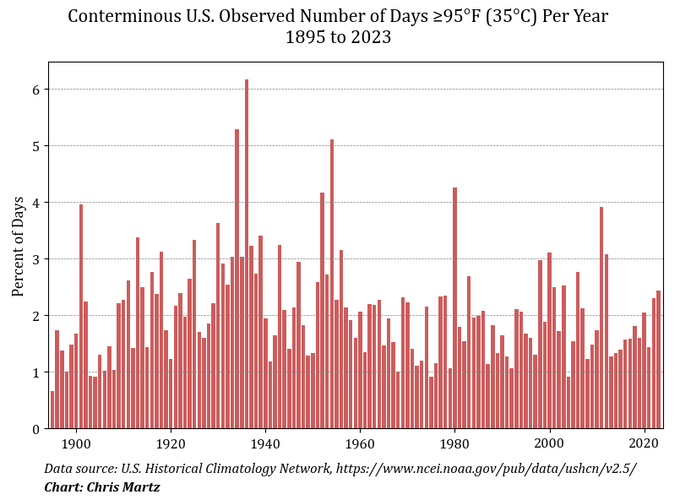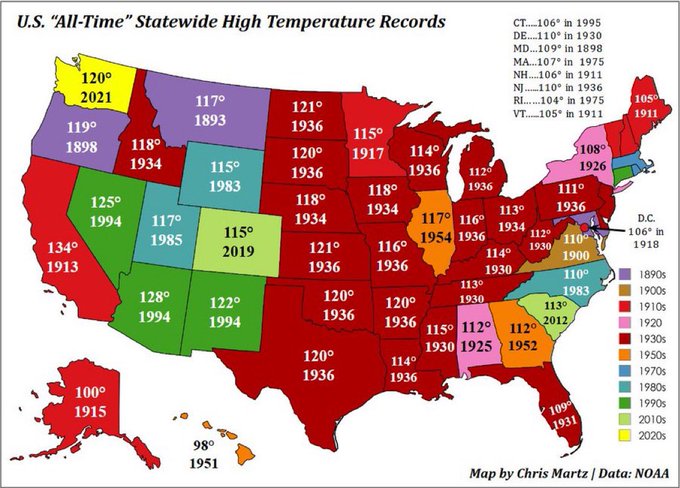
Climate alarmists claim that summers in the U.S. are becoming more extreme.
But, what they intentionally don't tell you is that the average number of days per year reaching ≥95°F (≥35°C) have 𝒅𝒆𝒄𝒓𝒆𝒂𝒔𝒆𝒅 since 1895.
In fact, hot days were ~18% less frequent in the 60-year period 1961-2020 than during 1901-1960.
If summers were more extreme today, this number would be increasing over the entire period of record, but they're not.
The attempt of a rebuttal to this point is that “The U.S. covers <2% of global land area. Stop cherry-picking!”
Of course, this comes from the same individuals who blame every heatwave somewhere on climate change and act hysterical when it reaches 100° in D.C. in July.










